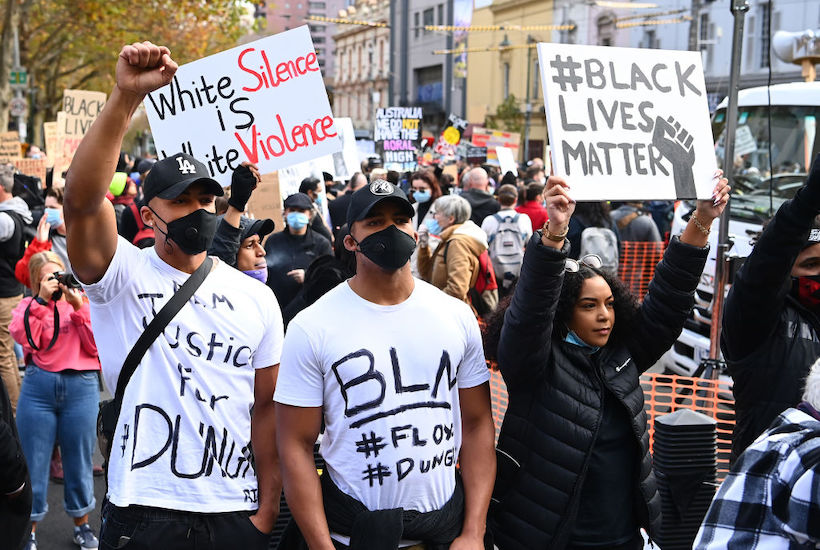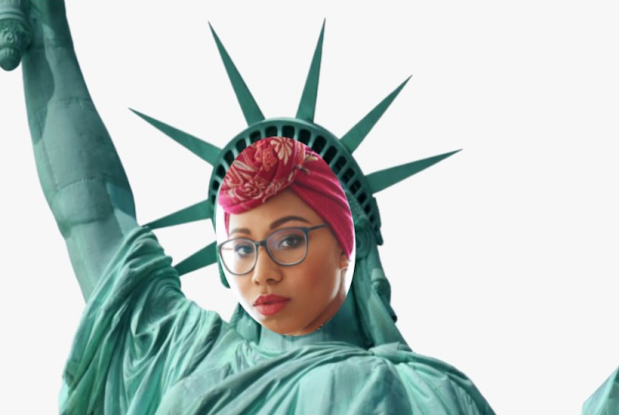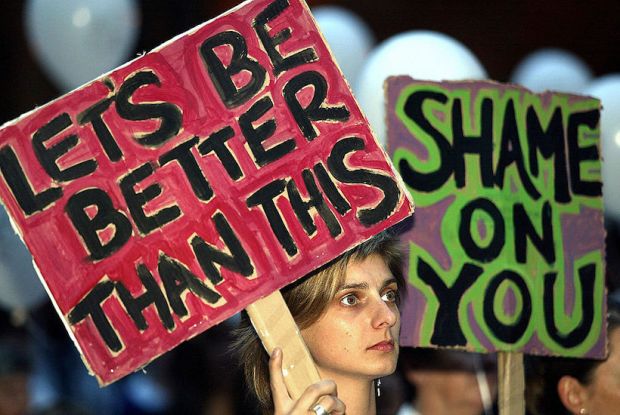* And so, most likely, are you**
** According to the new nomenclature.
I was born in another time and another place. It was a different world – the past always is – but it was also, for me, a different system.
Poland in 1972 was one of the most ethnically homogeneous nations in Europe, if not the world. This was one of the consequences of the Second World War, with its Holocaust, ethnic cleansing and border changes. Poland’s large pre-war Jewish minority has been all but wiped out by the Germans, with most of the few survivors choosing to migrate to British Palestine or the West. Much larger Belarusian, Ukrainian and Lithuanian minorities ended up on the other side of the new eastern border, Poland’s former marches – “Kresy”, meaning the “Ends” or the “Edges” – now incorporated into three separate Soviet republics.
In compensation, Poland’s western borders were shifted west, to take in areas of the German Reich like East Prussia, Eastern Pomerania and Lower Silesia, which had not been in Polish hands for six centuries or more or ever (the Soviets always had the habit of compensating others with yet somebody else’s possessions). Somewhere around seven million Germans who lived in these areas had either escaped the advancing Red Army or had been forcibly expelled soon after, with around a million deaths in the process from violence, starvation, sickness and exposure. Ethnic Poles expelled by the Soviets from the parts of the East they grabbed in 1944 were now transferred en masse to the newly “liberated” “Western territories”. My grandfather, born and bred in Lwow (now Lviv in western Ukraine) was one of the millions so relocated. Being an engineer he was fortunate enough to end up in an abandoned German villa in Zielona Gora (Green Mountain in Polish, Grünberg in Schlesien in German). Whole Polish villages from Wolyn, Podole, Polesie and other regions in Ukraine and Belarus were packed on cattle trains, shipped west and dumped in once-German villages, now emptied of their former occupants.
The result of all this killing and mass movements of peoples was a very Polish Poland, with only tiny remaining German, Ukrainian and Jewish minorities. The post-war de facto Soviet occupation made the situation even worse, effectively closing Poland off to most of the world. Tourism was not particularly encouraged, as it tended to bring pesky foreigners with their pesky ideas like freedom and capitalism. Commerce was mainly with the fellow Soviet Bloc countries.
When I was growing up in the 1970s and the 80s, I probably would have seen with my own eyes – and not on TV – no more than a dozen Africans or Asians, most likely guest students from the “fraternal socialist” countries of the Third World. Children would quite literally gape and point fingers at a rare sight of a black person, an almost mythical being known only from travel books and fairy tales. I’m not sure what an average Pole’s reaction would be if confronted then by the assertion of “white privilege”; probably confusion. Being stuck between Russia and Germany, our existence didn’t seem very privileged. As for the world outside of Europe, it’s difficult to compare and contrast if you don’t know much and have even less direct contact.
It was a different world. But it was the world from which I have taken the definition of racism as either a negative view (a spectrum all the way to hatred) of people belonging to other racial or ethnic groups or (and) a belief in a hierarchy of races in the world and the consequent belief that a certain race (usually one’s own) was superior in many or all regards to others. To illustrate, I would point to what many Germans thought about the Jews under Nazism, or to the colonial era beliefs about the superiority of the “white race” over the colonised peoples, or the Chinese belief that all non-Han peoples of the world were barbarians, the worse the further away from the Middle Kingdom, exemplified by the “white devils”.
This was the definition I have carried with me through life. I now live in Australia, one of the most multicultural countries in the world, and the Polish childhood seems so very far away. But my beliefs have not changed. To the extent races exist as an objective reality (and many scientists dispute that), I don’t think any is better or worse, superior or inferior. I prefer Martin Luther King Jr’s concept of judging people by the content of their character, not the colour of their skin. Character matters, so does culture. I don’t subscribe to the trendy relativist view that all cultures are equal and equally valid. Some cultural practices and some collections of such practices are more conducive to human flourishing than others. I don’t think many people any more are championing slavery, infanticide or autocracy. Belief in human dignity, autonomy, free inquiry (among many others) produces much better outcomes for people. The concept of universal human rights would be meaningless otherwise. But culture has nothing to do with genes or skin colour. Cultures vary within races and cultures also changes over time. There are, if you excuse a rather simplistic moral shorthand, good and bad people in every group and category, however you slice and dice the crooked timber of humanity. Whether they are good or bad has nothing to do with what they were born, their unchangeable innate characteristics. We’re all God’s children. The old Golden Rule is still the best: treat others how you would like them to treat you. But have the justified expectation that they will also treat you the way they would like to be treated themselves.
Times change, however, and beliefs change and definitions change too. So much so that under the increasingly popular new definition or definitions, despite holding the beliefs I summarised above, I can now be safely classified as a racist.
There are three major prongs to the ideological evolution of the concept.
The first one posits that racism is not merely a prejudice – it is prejudice plus power. Since white people hold the power, both in particular national cases like the United States or Australia as well as in the global context, and conversely other races don’t, this means that only white people can be racist. When some black people express sentiments like “kill whitey” or Asians talk about the “white devils”, these are examples of prejudice, but because black and Asian people have no power, it’s not racism. Being a white person, therefore, I meet the basic – and the only – pre-qualifying criteria for being a racist.
You would be forgiven for thinking then perhaps that while all racists are white people, not all white people are racists. But you would be wrong. Because the second prong of the redefinition is not concerned about individual beliefs and behaviours. Like in Marxism, whose meta-analysis it borrows and adopts, since racism is a question of power and power relationships between groups of different ethnicities and races, racism is a structural as opposed to a personal problem. Because everything around us – every political, cultural, economic, legal institution – is a reflection of the defining power structure in our society, everything embodies racism. And not just everything but consequently everyone. Everyone white, that is. We’re all collectively guilty of it. Some might be worse than others, but even the best and the most aware still share in the unconscious and subconscious racism. Because whiteness equals power equals racism, it is the new original sin that people like me carry. So really, the more Marxism you add to the mix, the less importance is given to individual prejudice. It’s about power, and prejudice, really, is assumed, because when you have the binary system including only the powerful and the powerless, the rulers and the ruled, the oppressors and the oppressors, it’s clear that those on the top of the pyramid simply have to be hostile and prejudiced towards those at the bottom in order to keep them in their place. And so, if under the first prong I merely qualify to be a racist by virtue of my skin colour, under the second prong I am unquestionably and unequivocally a racist, being a part and a beneficiary of the white power structure that oppresses all the other colours.
The wonderful thing about structural racism (if you are a leftist, that is) is that there is nothing we can do as individuals or collectives to make things better – no amount of self-reflection or cultural change or government programs will make any difference. The only way to solve structural racism (or any structural problem really) is to change the structure. So the current system – more or less liberal free-market democracy – being irredeemably racist (not to mention its other inherent evils), has to be changed into… something else. What that something else is usually a bit vague, unless you’re in Antifa, where the end goal is a communist state (for the revolutionary socialists) or no state at all (for the anarchists). Whatever it is, it certainly involves less freedom and more government, no matter how noble and idealistic the rhetoric might sound.
Finally, the third prong is the logical implication of the previous two, as translated in specifics: you are a racist not only if you despise and denigrate other races or think you’re own superior to others – you are also a racist if you don’t subscribe to the redefiners’ radical views of what racism is, how it manifests itself, and how it can be eliminated. By questioning any part of the new dogma or arguing that things are more complex than the new simple answers suggest, you are merely minimising, downplaying or denying the widespread institutional racism. Ergo you are a racist – and only a racist would deny they are a racist themselves or that the world is not as racist as portrayed. To take the current topical controversy as an example, you are racist if you refuse to take the knee or in any way deviate from the total acceptance of the Black Lives Matter creed. You are racist if you are concerned about black deaths as a whole and not only those at the hands of police officers. You are racist if you question whether violence, looting and arson are the right ways to bring attention to the problem and affect change. You are certainly racist if you look at the statistics and conclude (as some do) that black Americans are as likely to be shot as white Americans when confronting police, or that black and other minority cops are more likely to shoot a black suspect than white cops.
It’s really very simple – as CNN’s “conservative” star S E Cupp twitted the other day, “Pick a knee. The one that knelt on a neck or the one that knelt to try to prevent it.” You are either with BLM or you are with the murderers. But this, of course, extends beyond the current events that revolve around violence to any other issue and problem as it pertains to races and ethnicities other than white: if you hold any other opinion you are racist. Just like Antifa declares anyone to the right of them – which, if you are a Marxist, is everyone – a fascist, so the redefiners declare everyone a racist who is not completely and unequivocally in agreement with their diagnosis of the problem and suggested solutions. This means I am a racist now, and so, most likely, are you, dear reader.
Thomas Sowell once wrote that “Racism is not dead. But it is on life-support, kept alive mainly by the people who use it for an excuse or to keep minority communities fearful or resentful enough to turn out as a voting bloc on election day.” I’m not sure if I’m quite as optimistic. Racism is real. Racism exists. It always had. It probably has something to do with the human instinct to define oneself as a member of a group and in contrast to other groups. With time and progress, however, we are hopefully seeing racism decrease, the same way we have already largely abandoned some other superstitions that have held sway over us in the past. Speaking of Thomas Sowell, if you’re feeling sorry for yourself or outraged about being automatically redefined as a racist, spare a thought for black and other POC intellectual and activists who refuse to subscribe to the progressive narrative: they are considered not simply racists (“they have internalised [white] racism”, being the intersectionality’s equivalent of “false consciousness”) but also traitors to their own race – Uncle Toms, coconuts, sellouts. Their struggle is much more important than ours; they deserve all our support.
The problem of minority disadvantage, in the many different forms it takes, is a complex one and is not amenable to simplistic explanations like “white man bad” and equally simplistic solutions flowing from it. What I do know, what my distant childhood has taught me, is that radical outlooks and programs based on polarising society and demonising sections of it in order to effect revolutionary societal change are not the way to go. Marxism is poison, and its latest iteration, identity politics, is poison too. Don’t let the radicals control the debate, don’t let them redefine who you – and they – are, and don’t let them destroy our society “in a good cause”. Like all human creations, it is imperfect and a work in progress, but it’s a hell of a lot better and more promising than any of the past or the imagined alternatives.
Arthur Chrenkoff blogs at The Daily Chrenk, where a version of this piece also appears.
Got something to add? Join the discussion and comment below.
Got something to add? Join the discussion and comment below.
Get 10 issues for just $10
Subscribe to The Spectator Australia today for the next 10 magazine issues, plus full online access, for just $10.


























Comments
Don't miss out
Join the conversation with other Spectator Australia readers. Subscribe to leave a comment.
SUBSCRIBEAlready a subscriber? Log in